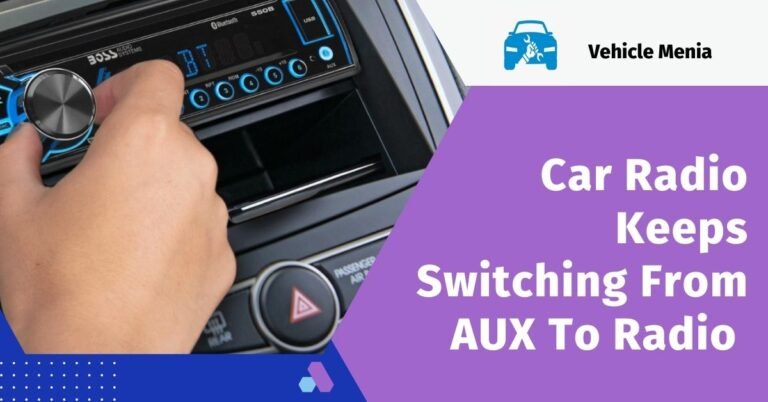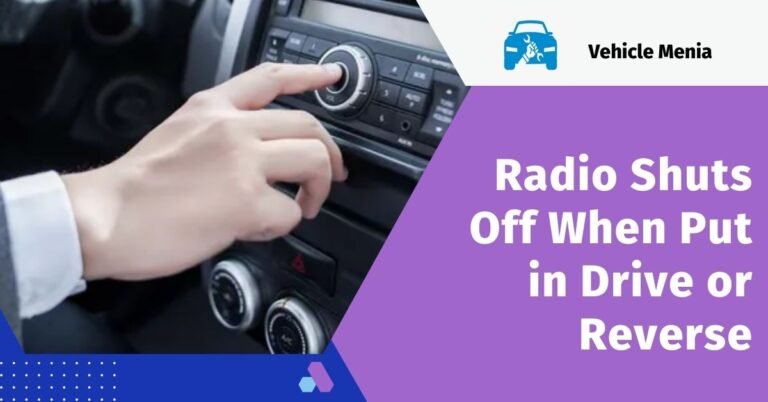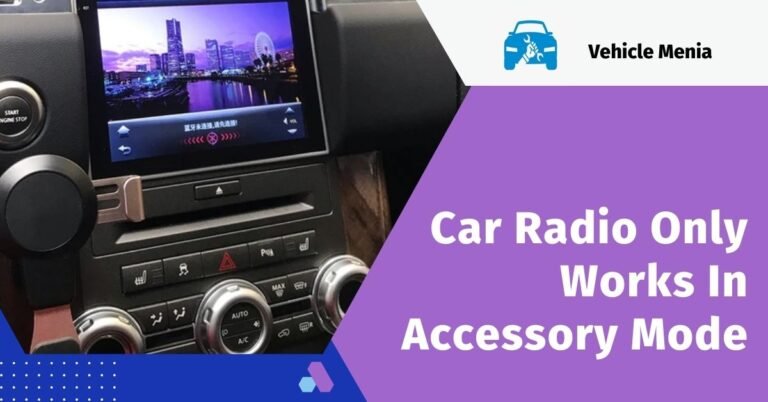Why does my radio cut out every few seconds? Common causes include loose wiring, head unit issues, grounding problems, interference, and outdated firmware. Learn quick fixes to restore uninterrupted audio.
Why Does My Car Radio Keep Cutting Out?
Loose Connections or Faulty Wiring:
Car Radio Cuts Out Every Few Seconds: The most common cause of intermittent audio cutouts in radios is loose or faulty wiring, including minute power supply wires, speaker connections, or internal connections within the head unit.
- Symptoms: Radio turns on and off at periodic intervals, perhaps every few seconds, regardless of whether the source is FM/AM, Bluetooth, satellite, etc. Cut-outs are about the same duration, and the behavior is consistent for all speakers.
- Cause: Driving over time can cause the connections to loosen due to vibration or deteriorate the integrity of the wires. If this is the case with the power wire, it will not feed consistent power to the radio, leading to cut-outs. Similarly, if the speaker wires are loose, it disrupts the audio signal.
Head Unit Internal Issues:
Internal problems can cause head units, the control center of your car’s audio system, to cut out audio. One of the most common issues is a ‘cold solder joint,’ a weak or partially broken solder connection between various components on the circuit board.
- Symptoms: The audio cuts out consistently, and it does not matter which audio source is used. The display and buttons on the head unit stay on, suggesting that the problem is at the audio output level, not at the overall power supply level.
- Cause: The head unit contains poor solder joints or failing components, which disrupt the connection required to maintain consistent audio output. It is most likely to happen if the unit has been exposed to high temperatures or physical impact throughout its life span.
Grounding Problems:
Grounding is even more crucial for the electric stability of the audio system installed in your car. Improper grounding will lead to intermittent problems with the audio and electrical noise interfering with the radio signal.
- Symptoms: Besides cutouts, you might hear a whining sound that varies with engine speed, known as alternator whine. Audio disturbances may be most evident when the car moves or any electrical systems, such as the AC or headlights, are turned on.
- Cause: The radio intermittently loses audio due to a ground wire that is either not attached well to a stable metal surface or has corroded. Poor installation or modification also accentuates grounding problems.
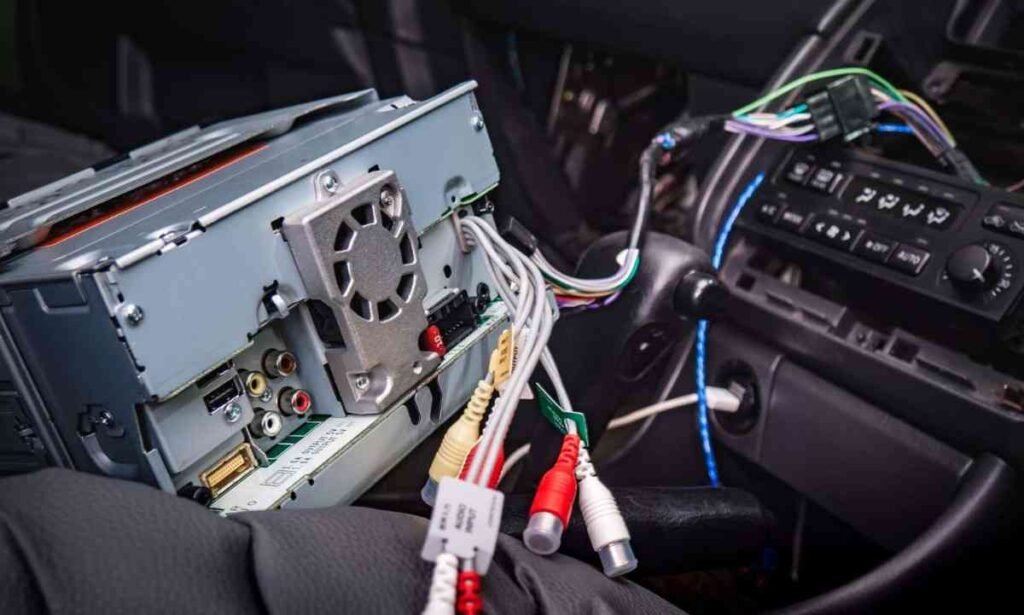
Interference or Electrical Noise:
Electrical interference from the alternator, ignition system, or even aftermarket electronics can interfere with the radio signal. This is more common with Bluetooth or satellite audio, which requires a ‘clean’ signal to continue playing audio consistently.
- Symptoms: Audio cutouts are more frequent when wireless connections like Bluetooth are used. Other forms of interference, such as static or crackling sounds, may also appear.
- Cause: The radio cannot maintain an audio signal when there is electrical interference from the vehicle’s motor or other systems, along with improper shielding and poor grounding.
Software or Firmware Issues:
Modern car stereos mostly include software or firmware governing different system functions. Over time, this can become outdated or develop glitches, malfunction, and act erratically, including regular audio cutouts.
- Symptom: The stereo may act erratically, with audio cutting in and out regularly, as is familiar with most hardware issues.
- Cause: The software bug, caused by out-of-date firmware, conflicts with the stereo’s functioning, creating audio dropouts. This is common with new models because they involve complicated software.
How To Fix A Car Radio That Keeps Turning Off?
Check And Secure All Connections:
First, check your connections behind the head unit. That means the power and ground wires, along with all of the speaker connections. All of them should be snug and free of corrosion.
Replace any damaged or frayed wires. Check the connectors, especially for looseness of fit or extensive wear; you may need to replace them for a good connection.
After securing connections, test the radio to see if the problem still exists. If the radio works without any cutouts, this is a bad or loose connection.
Repair Or Replace The Head Unit:
If loose connections are not the cause, the problem can be with the head unit. Cleverly disassemble the unit, then check the circuit board for any apparent damage or cold solder joints.
If you are comfortable with soldering, you can reflow any cold solder joints using a soldering iron. You simply heat the solder to improve the connection between the parts.
If repair cannot be done or is too complicated, either inside or from the main head unit, replacement to a new/aftermarket head unit should be considered. Brands like Pioneer, Alpine, and Kenwood offer reliable alternatives with warranties and modern features.
Improve Grounding:
Check the radio unit’s grounding and ensure it is attached to a clean, unpainted metal surface on the car’s chassis. Scrape away rust, paint, or dirt from around that connection point to ensure solid ground.
Run a new ground wire, if necessary, considering that the wire must be thick enough to handle the head unit’s electrical load. Another solution is hooking up the head unit’s ground wire directly to the battery’s negative terminal. Therefore, this might be riskier and must be handled with care as new electrical issues are bound to emerge.
Test the audio system to complete this process once the ground connection has been well-connected or replaced.
Reduce Electrical Noise:
Install a noise suppressor or ground loop isolator on the audio input lines to filter out high-frequency electrical noise from the vehicle. This is especially indicated for installations of Bluetooth or satellite systems, where the catches are generally noise.
Ensure that all installed auxiliary/aftermarket electronic accessories, such as amplifiers or any navigation setup, are properly grounded and noise suppressors are installed where required. Any badly installed accessory sometimes causes electrical noise that may affect the audio system.
Recheck radio performance to see if the noise abatement measures have eliminated the noise problem.
Perform A Software Reset Or Firmware Update:
- Step 1: Refer to your user manual or check the manufacturer’s website for specific instructions on resetting your car stereo. This often clears up minor glitches in the radio’s software that may cause it to cut out.
- Step 2: Go to the manufacturer’s official website or call customer service and ask about any recent firmware updates for your stereo model. Follow the instructions to download and install the update.
- Step 3: Once you reset or update the stereo with the latest firmware, test it for the cutout problem. Indeed, keeping the stereo software updated can avoid many general issues and enhance functionality.
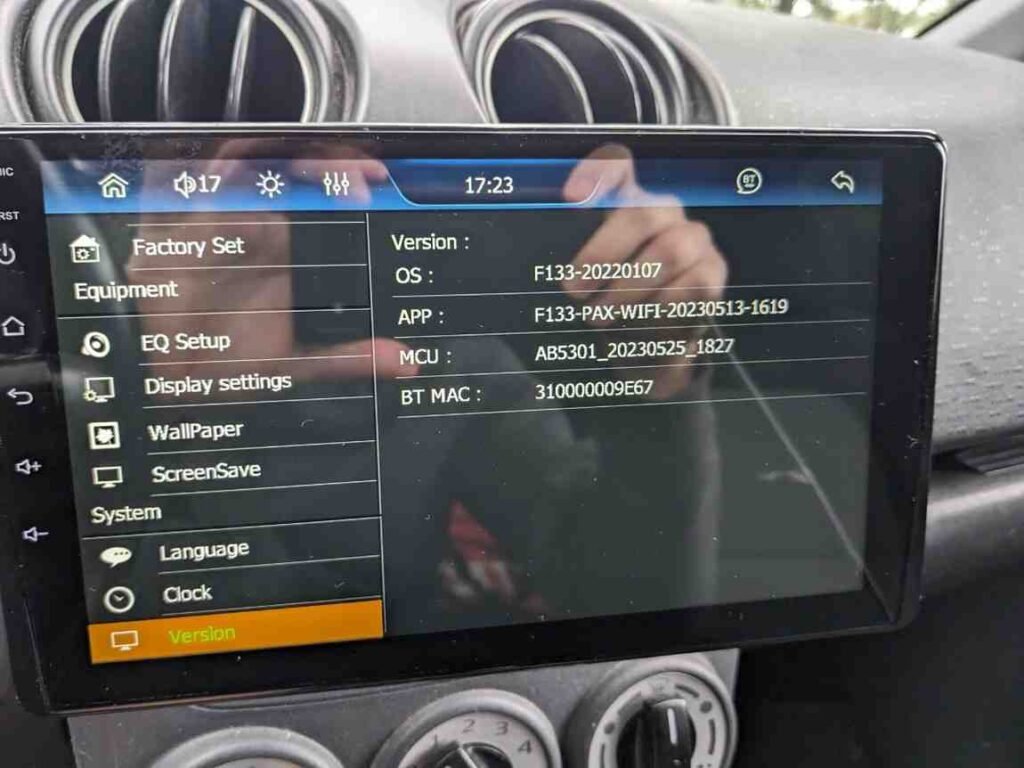
Consider Upgrading To An Aftermarket Head Unit:
Upgrade to an aftermarket unit if impracticable due to the need for frequent repairs or persistent problems with the existing head unit. Also, it warrants a brand with a good reputation in this field: reliable, qualitative, and compatible with your vehicle’s make.
Search for features that are desirable for your needs, such as Bluetooth, USB inputs, and smartphone integration. Modern aftermarket head units boast better audio processing and increased shielding against electrical noise.
We recommend that you have it professionally installed to correct any installation or setup and integrate well with your car’s current audio system. This will minimize the chances of encountering problems later on.
Related Questions:
Why Does My Car Radio Keep Going In And Out?
If it cuts off while driving down the road or the head unit intermittently shuts off, again, this is usually due to an issue with the wiring in your car stereo. This holds more merit if the display shuts off so you can tell the stereo is losing power.
Why Does My Car Radio Keep Losing Reception?
One of the more common causes of poor reception with a car radio is a poor antenna connection. If the antenna cable in your head unit is poorly seated-or any connections are loose, worn, or corroded-you’ll often find difficulty tuning into your favorite station.
Why Does My Car Radio Work Intermittently?
If the radio doesn’t turn on, a blown fuse or bad wiring may be the culprit. However, if it’s intermittent, it won’t be a fuse. It could still be a loose connection.
Final Thoughts
Working with a car radio that cuts out every few seconds is a real pain, but there are causes and fixes for this that can restore your listening experience. That said, ruling out the simple explanations first, such as checking all the connections for issues in wiring or grounding. If the problem persists, a more advanced head unit or electrical noise checking should be done. In many cases, an update to software or firmware, or even the upgrade to a modern aftermarket head unit, may provide a more permanent solution with improved reliability and features.

